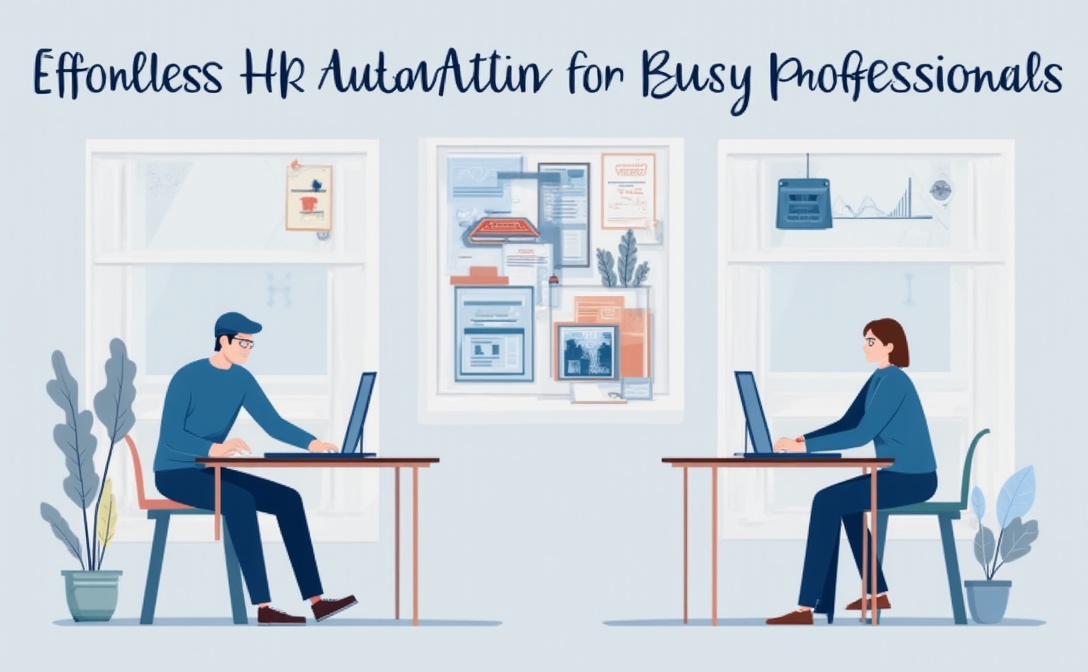The Unexpected Benefits of Embracing a Minimalist Lifestyle for Mental Clarity and Reduced Stress
Estimated reading time: 8 minutes
Key Takeaways
- Adopting minimalism enhances mental clarity and reduces stress by decreasing physical and digital clutter.
- Implementing streamlined processes and decluttering spaces fosters better focus and emotional resilience.
- Automation and AI tools (https://example.com) support minimalist principles, reducing mental load and promoting efficiency.
- Minimalism encourages creativity, improves sleep, and decreases decision fatigue for individuals and organizations alike.
- Applying minimalist strategies in business can lead to healthier workplaces and more strategic decision-making.
Table of Contents
- Understanding Minimalism and Its Core Principles
- The Connection Between Minimalism, Mental Clarity, and Stress Reduction
- Applying Minimalism in Business: Practical Takeaways for HR and Recruitment
- How Our AI Consulting and Workflow Automation Services Support Minimalist Principles
- The Bottom Line: Embracing Minimalism for Better Business and Well-being
- Frequently Asked Questions
Understanding Minimalism and Its Core Principles
Minimalism is a lifestyle choice that encourages individuals to focus on what truly adds value to their lives while eliminating excess. The core principles include intentionality, simplicity, and mindfulness—shaping daily habits so that time, energy, and resources are directed toward meaningful pursuits. This approach can be applied broadly—from physical environments and digital clutter to commitments and mental load.
Recent research indicates that minimalism is more than just a trend; it is a catalyst for psychological resilience and cognitive clarity. According to The Minimalists, reducing physical and mental clutter can foster greater happiness, purpose, and stress management.
The Connection Between Minimalism, Mental Clarity, and Stress Reduction
While the immediate benefits of decluttering—such as tidier spaces and more time—are visible and tangible, the deeper, more unexpected benefits are particularly compelling. Here’s how embracing minimalism can transform mental health and stress levels:
1. Enhanced Focus and Productivity
Cluttered environments and overloaded digital devices are significant sources of distraction. Research published in the Journal of Environmental Psychology shows that clutter can increase cortisol levels—the hormone related to stress—and impair cognitive function. Minimizing distractions through intentional organization improves focus, enabling individuals to allocate their mental resources more efficiently.
For HR professionals and recruiters, this translates into improved decision-making, better candidate evaluation, and more strategic planning. Automated workflows in tools like n8n can help eliminate repetitive tasks, further streamlining operations. For example, integrating candidate screening processes with automated messaging reduces mental load and frees up precious time.
2. Greater Emotional Resilience
Minimalism fosters a mindset of letting go—of possessions, commitments, or negative thought patterns—that enhances emotional resilience. By consciously choosing to focus on what truly matters, individuals cultivate a sense of control and purpose. This deliberate prioritization reduces feelings of overwhelm and increases tolerance for stress.
Studies from positive psychology suggest that simplifying one’s life encourages mindfulness and gratitude, strengthening mental fortitude. Within organizational contexts, this can lead to more confident leadership and a healthier, more motivated workforce.
3. Improved Sleep and Physical Health
Physical clutter and mental agitation disrupt sleep quality—a vital component of mental health. When environments are simplified, individuals often experience fewer sleep disturbances, leading to better cognitive function and mood regulation. Some research posits that minimalism, by reducing visual and cognitive stimuli, promotes a sense of calmness conducive to restful sleep (Sleep Foundation).
Organizations that promote a minimalist approach to workspaces—such as clean desks and digital decluttering—can support employee well-being, reducing burnout and absenteeism.
4. Reduced Decision Fatigue
Decision fatigue is a phenomenon where mental exhaustion hampers the quality of choices made later in the day. Minimalism encourages setting clear priorities, which decreases the number of decisions required daily. This streamlining results in more decisive, confident behavior—crucial for leadership and tactical operations.
Reinforcing this, AI consulting firms specializing in workflow automation can help organizations implement simplified decision-making pathways. Automated n8n workflows, for example, can handle routine approvals and data collection, allowing HR teams to focus on strategic tasks.
5. Increased Creativity and Innovation
Contrary to the misconception that clutter fuels creativity, a minimalist approach often fosters innovative thinking. Minimal environments reduce sensory overload, allowing for clearer mental space to generate ideas and solve problems. In research by the University of California, participants working in minimalist settings demonstrated higher creativity levels.
For recruitment agencies and HR teams, this heightened clarity can facilitate more effective talent sourcing, diversity initiatives, and strategic growth planning.
Applying Minimalism in Business: Practical Takeaways for HR and Recruitment
Organizations can leverage the principles of minimalism not only for personal well-being but also to enhance operational efficiency and workplace culture. Here are practical steps for HR professionals and business leaders:
- Digital Decluttering: Implement protocols to clean and organize digital assets—email inboxes, shared drives, and workflow management tools. Use automation platforms like n8n to integrate systems, automate repetitive tasks, and reduce mental clutter for teams.
- Simplify Processes and Policies: Review and streamline HR policies and recruitment procedures to remove unnecessary steps. Clear, concise policies reduce decision fatigue among HR teams and improve candidate experience.
- Create Calm, Minimal Workspaces: Encourage employees to maintain clutter-free workstations. Consider adopting minimalist design principles in the office or remote setups to foster focus and tranquility.
- Prioritize Tasks Strategically: Use mindful prioritization techniques, such as the Eisenhower Matrix, to help teams focus on high-impact activities. Automate scheduling and reminders through workflow automation tools to ensure focus stays on strategic priorities.
- Foster a Culture of Intentionality: Promote mindfulness and intentional living within the company culture. Offer training and resources on time management, stress reduction, and the benefits of minimalism.
- Leverage AI and Automation: Implement AI-driven solutions to handle routine tasks, data entry, and information management. Automating these processes minimizes mental load and allows HR professionals to dedicate their expertise to strategic initiatives.
How Our AI Consulting and Workflow Automation Services Support Minimalist Principles
Our company specializes in AI consulting and workflow automation tailored to the unique needs of Canadian organizations. We assist businesses in designing smart, minimalist workflows that streamline operations and promote mental clarity.
Using n8n, an open-source workflow automation tool, we help clients connect disparate systems, automate repetitive tasks, and reduce digital clutter seamlessly. Whether it’s automating applicant tracking, onboarding, or payroll processing, our solutions simplify complexity, freeing resources and reducing stress.
Furthermore, our AI consulting team provides strategic guidance on digital transformation initiatives, ensuring that automation efforts align with your business goals and culture of simplicity.
The Bottom Line: Embracing Minimalism for Better Business and Well-being
While often associated with personal lifestyle choices, minimalism offers profound benefits for mental clarity and stress reduction both individually and organizationally. By intentionally reducing clutter—physical, digital, or cognitive—individuals and companies can experience enhanced focus, emotional resilience, creativity, and overall well-being.
In today’s competitive and demanding environment, adopting minimalist principles can be a strategic advantage—helping organizations operate more efficiently, innovate more freely, and maintain a healthier, more engaged workforce.
If you’re interested in exploring how AI consulting and workflow automation can help your organization embrace a minimalist approach, reduce stress, and boost productivity, contact us today. Let us guide you toward smarter, simpler, and more effective business processes.
Explore our services or schedule a consultation now to discover how embracing minimalism through AI and automation can transform your organization.
Frequently Asked Questions
What is minimalism?
Minimalism is a lifestyle philosophy that encourages focusing on what truly matters and removing excess—whether physical possessions, digital clutter, or unnecessary commitments. It promotes intentional living to improve clarity and reduce stress.
How does minimalism improve mental health?
By reducing clutter and unnecessary distractions, minimalism helps increase focus, emotional resilience, and overall well-being. It fosters mindfulness, better sleep, and a calmer mental state.
Can organizations benefit from minimalism?
Yes. Implementing minimalist principles in workflows, spaces, and policies can enhance productivity, decision-making, and employee well-being. It promotes efficiency and a healthier workplace culture.






